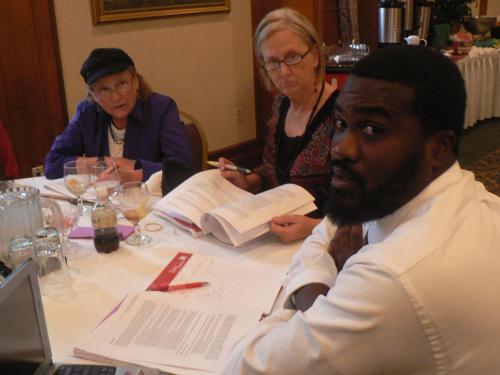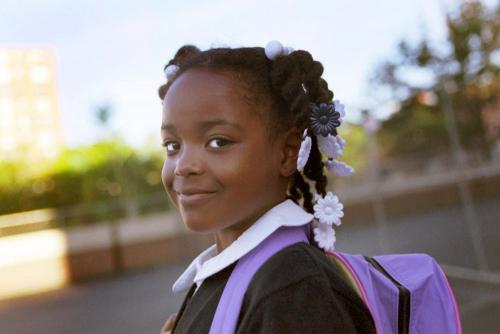Overview of the Week: July 6 - 10, 2009
 Teacher Institute on Powerful Voices Wiki
Teacher Institute on Powerful Voices Wiki
Mornings include introduction to theoretical concepts in media literacy, demonstrations of model lessons, analysis of teaching and learning practices, and time for discussion and reflection. Afternoons provide opportunities to work collaboratively and individually, composing with multimedia tools, including video cameras and online media composition tools.
- Day 1. Media Literacy as Literacy for the Information Age
- Day 2. Understanding Today's Learners
- Day 3. Authors and Audiences, Messages and Meanings
- Day 4. Representations and Realities
- Day 5. The Home-School Connection
Theory and Practice (with kids!): During the program, participants will have
opportunities to engage directly with a group of children enrolled in
Philadelphia's Russell Byers Charter Elementary School media literacy
summer camp. Educators will learn directly about
children'sout-of-school literacy practices and observe children's
interpretation and analysis skills in engaging with images, film and
television, videogames andthe Internet. Supported by a grant from the
Verizon Foundation, the Powerful Voices for Kids summer media camp
gives 100 children, aged 6 to 11, the change to learn media literacy
concepts, strengthen engagement in literacy learning. and develop
lifelong communication skil ls, including collaborative brainstorming,
active listening, public speaking, and offering and using feedback.
ls, including collaborative brainstorming,
active listening, public speaking, and offering and using feedback.
Why it Works: Harnessing Engagement and Motivation. Media literacy, integrated into the elementary curriculum, is one dimension that addresses the very real problems faced in urban education. Research shows that 50% of students enrolled in urban public schools do not graduate from high school. Many children are disillusioned with school by the time they reach Grade 3. Negative attitudes about school and learning often intensify during Grades 4 - 6 when students form beliefs and attitudes about school, teachers, and their own capabilities as readers and learners.
Why it Works: The Home School Connection. Research
shows that literacy skills develop at the intersection between school
practices and the literacy practices outside of school. Unfortunately,
most literacy programs for urban children ignore or trivialize
students' out-of-school literacy practices, leading to
disenfranchisement with school. We believe that teaching children how
to use expression and communication for personal and community advocacy
can strengthen literacy and problem-solving skills which contribute to
academic success.
Why it Works: Technology Integration. Children who use the inquiry
process along with technology tools become energized by the process of
learning about the world around them. Parents can learn simple
strategies for making screen activities like television viewing,
videogame playing and online media use into opportunities to develop
critical thinking and communication skills.
These skills can also help develop a love of learning and the sense of joy that results from mastering new knowledge. By making connections between the classroom and the culture, children become effective communicators. This helps transform a frustrated student into one who can have productive relationships with peers, family members, teachers, and the community at large.
Evidence-Based Curriculum. Teachers
and Temple University graduate students are working collaboratively on
the development and implementation of multimedia assessment tools to
document student learning. We are also developing a parent-outreach
component focused on using television and the Internet at home to
promote literacy learning. The program will make extensive use of media
and technology and be based on principles of inquiry-based learning.
Our History. This project is a partnership between Laurada Byers, Founder of the Russell Byers Charter Elementary School and Dr. Renee Hobbs of Temple's MediaEducation Lab. We started by learning more about the technology and media use patterns of children at the Byers Charter Elementary School.In the project's launch phase, the Powerful Voices for Kids Summer Institute includes a staff development program for elementary educatorsand a media literacy summer camp program designed to increase motivation and engagement in literacy learning among urban children, their parents, and their teachers.This program bridges the gap between school and culture with a focus on media literacy education, using mass media, popular culture and digital technology to engage urban children in literacy activities.